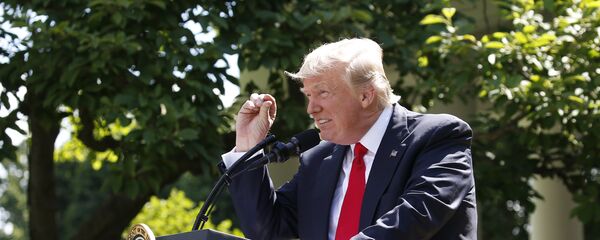Lin Boqiang, director of the Center for Energy Economics Research at Xiamen University, said that China will become a leading force in the battle against climate change, following US President Donald Trump's announcement that the US would withdraw from the Paris Agreement.
"China will continue its reforms in the energy sector, which will help reduce carbon emissions," he told the Global Times on Sunday.
Trump's decision has drawn widespread condemnation from world leaders, local politicians, businesses and environmentalists.
It will undermine the efforts of states, cities, and US businesses to grow the economy and create jobs, US-based Energy Foundation CEO and co-founder Eric Heitz said in a statement sent to the Global Times on Sunday.
Heitz said that the US is retreating from its global leadership position on trade, national security and climate change, but "China has affirmed its ongoing commitment to climate action, securing its position as the undisputed global leader." He added that Europe and India are also stepping up to fill the void.
"Taking on global leadership is too much, too soon for China. The US is a significant emitter, so reducing emissions can't be entirely achieved without US participation," said Jiang Shixue, a professor at Shanghai University.
Premier Li Keqiang told reporters in Berlin Thursday that China will continue to implement its Paris commitments, pointing to the decline in coal consumption, the Xinhua News Agency reported.
China is the largest investor in domestic renewable energy at $103 billion in 2015, up 17 percent year-on-year, according to a report issued by the Institute for Energy Economics and Financial Analysis in January. From 2015 to 2020, the country will install 36 percent of all global hydro electricity generation capacity, 40 percent of all worldwide wind energy and 36 percent of all solar energy.
Investment in renewables from 2015 to 2020 will reach 2.5 trillion yuan ($367 billion), replacing 150 million tons of fossil fuels and reduce annual carbon emissions by 1.4 billion tons by then, according to the National Development Reform Commission in December 2016. Coal is expected to make up 60 percent of China's energy mix in 2017, the National Energy Administration said.
While some major Chinese cities have been struggling to reduce air pollution in recent years, companies and industries will spend more on reducing pollutant emissions, Li Li, director of research at the Shanghai-based ICIS China.
"However, profit margins of non-fossil fuels are still lower than for fossil fuels, so wind and solar power need to be supported by policies and subsidies," she said.
Trump's decision on climate change is likely to enhance the China-EU partnership, she added.
Although the US president does not favor the Paris Agreement, some US states, cities and big businesses have affirmed their commitment to the deal, and China can maintain dialogue with them for cooperation in clean energy, as this does not need to be at a bilateral level, Lin noted.
The governors of New York, California and Washington announced in a joint statement Thursday a coalition that will convene US states committed to upholding the Paris Climate Agreement and taking "aggressive action on climate change," ABC News said in a report on Friday.
California Governor Jerry Brown said on Thursday he will discuss merging carbon trading markets in his state and China when he travels to Asia later this week, a sign of the governor's ambition to influence global climate change policy, Reuters reported.
In 2014, Chinese electric car manufacturer BYD commissioned a new eBus factory in Lancaster, California, where in 2016 alone it expects to supply 300 eBuses for the US market, the Institute for Energy Economics and Financial Analysis reported.
This article was written by Chen Qingqing and was orignally published by the Global Times.






